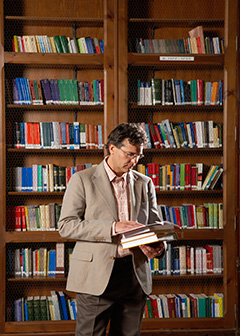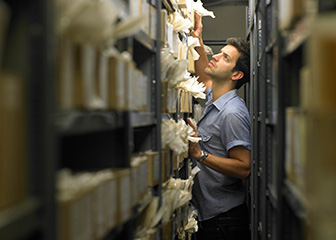
Many people who complete a Ph.D. in history become professors.
Although most historian positions require a master’s degree, some research positions require a Ph.D. Candidates with a bachelor’s degree may qualify for a limited number of positions, but most will not work in traditional historian jobs.
Education
Historians need a master’s degree or Ph.D. for most positions. Many historians have a master’s degree in history or public history, which takes 2 years to complete. Others complete degrees in related fields, such as museum studies, historical preservation, or archival management. Many programs require an internship or other onsite work experience as a part of the degree program.
Some research positions require a Ph.D. Students in history Ph.D. programs usually concentrate in a specific area of history. Possible specializations include a particular country or region, period, or field, such as social, political, or cultural history.
Candidates with a bachelor’s degree in history usually work outside of traditional historian jobs. Often, their liberal arts background and writing and researching skills are suitable for jobs in education, communications, law, business, publishing, or journalism.
Many people with a background in history become professors and teachers. For more information on those who teach at colleges and universities, see the profile on postsecondary teachers. For more information on those who work as high school history teachers, see the profile on high school teachers.
Work Experience
Many historians benefit from internships or field experience when they look for positions outside of colleges and universities. Most master’s programs in public history and similar fields require an internship as part of the curriculum. Internships offer an opportunity for students to learn practical skills, such as handling and preserving artifacts and creating exhibits. They also allow students to apply their academic knowledge in a hands-on setting.
Those without internship experience can benefit from volunteering or working in an entry-level position to gain similar practical, onsite experience. Positions are often available at local museums, historical societies, government agencies, or nonprofit and other organizations.
Important Qualities
Analytical skills. Historians must be able to examine the information and data in historical sources and draw logical conclusions from them, whether the sources are written documents, visual images, or material artifacts.
Communication skills. Communication skills are important for historians because many interpret history for the public through presentations. Historians also need communication skills when they interview people to collect oral histories, consult with clients, or collaborate with colleagues in the workplace.
Problem-solving skills. Historians try to answer questions about the past. They may investigate something unknown about a past idea, event, or person; decipher historical information; or identify how the past has affected the present.
Reading-comprehension skills. Historians must be able to read through and digest information from a large number of historical documents, texts, and other sources.
Writing skills. Writing skills are essential for historians, who present their research conclusions in reports, articles, and books.














